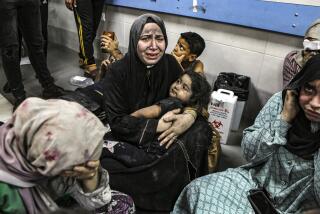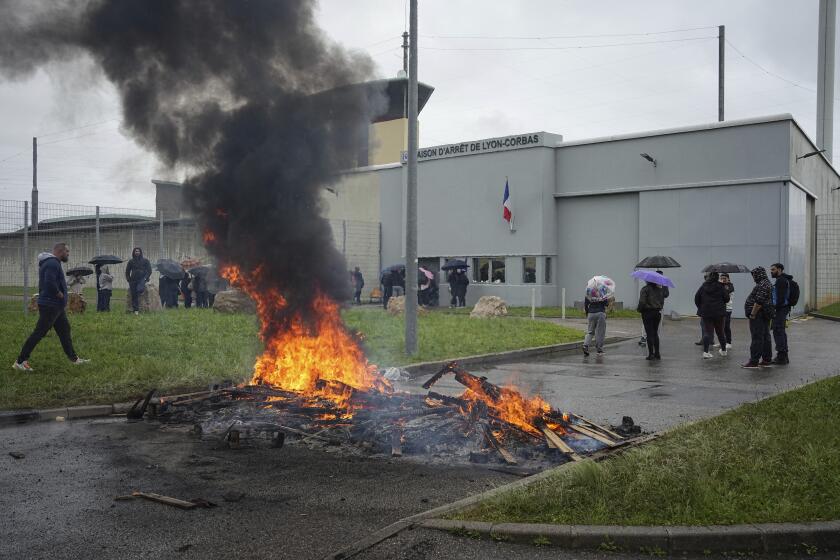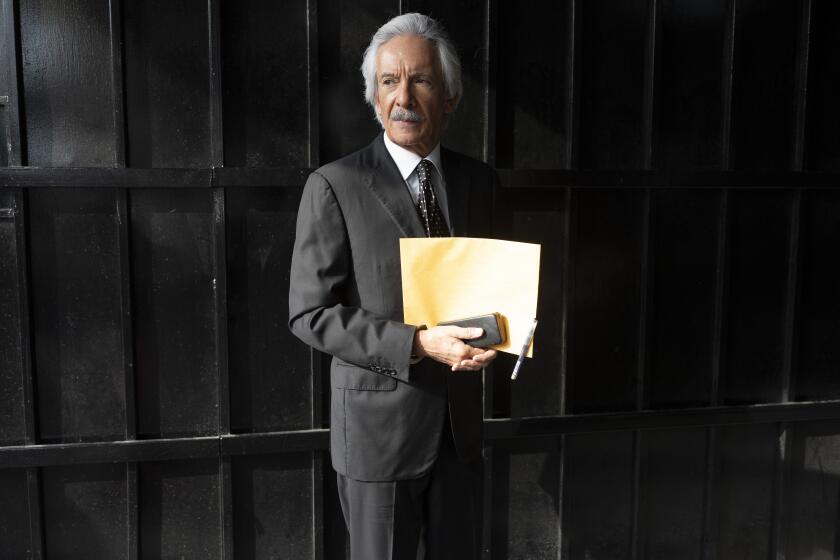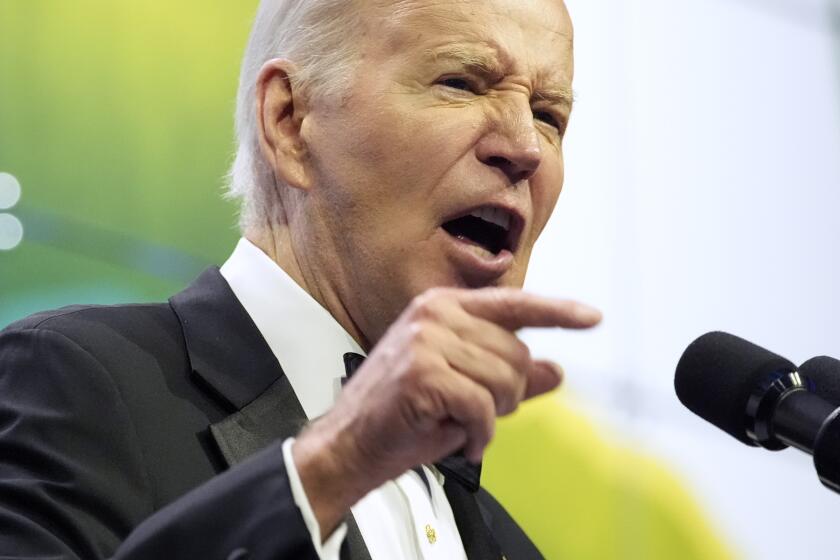Near Iraq, Syria Reportedly Still Quietly Backs Militants
With the U.S. focused on fighting resistance in Iraq, neighboring Syria continues to support militant Islamic groups designated as terrorist organizations by the State Department, according to analysts, prominent opponents of the government and Western diplomats.
Despite intense U.S. pressure, Syria has not shut offices of Hamas and Islamic Jihad. Hezbollah guerrillas in Lebanon, who launched a mortar attack against Israel on Sunday, continue to receive weapons from Syria, sources said. Damascus also refuses to eliminate chemical and possibly biological weapons that the U.S. suspects Syria possesses, the sources said.
Instead, President Bashar Assad is betting that the Bush administration stays occupied with its struggle in Iraq, the Palestinian-Israeli peace process and upcoming U.S. presidential elections, diplomats and analysts said. By making cosmetic changes and avoiding interference in Iraq, Assad hopes to fend off U.S. pressure and avoid making politically risky moves against the militant groups.
“They are playing for time,” said a Western diplomat here.
Syrian officials said they continue to consider U.S. requests as part of discussions that include Syria’s desire to participate in the latest Middle East peace plan, the “road map.” They say they are seeking to eliminate weapons of mass destruction throughout the region -- a pointed reference to Israel’s suspected stocks of nuclear and chemical arms. But they will not be pressured into one-sided changes, said Information Minister Adnan Umran.
“Our objective is to have a positive dialogue and resolve our differences,” he said.
The U.S. has a complicated relationship with Syria, listed by the State Department as a sponsor of terrorism. Syria has won praise for supplying intelligence that has led to the capture of Al Qaeda operatives. But during the Iraq war, the United States accused Syria of allowing anti-American guerrilla fighters into Iraq and of harboring Iraqi fugitives.
Soon after, Syria shut its border and began to expel fleeing Iraqi government officials, leading to the capture of several on the U.S. most-wanted list. U.S. pressure continued, however, with Secretary of State Colin L. Powell visiting Damascus in May. At the end of the visit, Powell announced that Syria would shut local branches of Hamas, Islamic Jihad and the Popular Front for the Liberation of Palestine-General Command, a secular group opposed to Israel.
But in June, Powell said Syria had taken only limited steps to shut down the offices, calling the effort “totally inadequate.” The groups’ leaders are still living in Syria and continue to transfer money and teach bomb-making classes, sources said. All the groups have been classified as terrorist organizations by the State Department.
“As long as they have a cell phone and a laptop, these groups are in business,” a Western diplomat said. “The leaders have not been expelled, and we are seeing some troubling things.”
Syrian officials maintain that the offices are no more than the private residences of local representatives who disseminated public relations information until voluntarily stopping recently.
“What do you call an office? They have a telephone,” Umran said. “But there is no office which is carrying out any activity of any kind.”
A visit in late July to the groups’ offices confirmed that some representatives continued to live in Syria.
In Yarmouk, the oldest and largest Palestinian refugee camp in Damascus, the Hamas flag still flew outside the group’s third-floor office in late July. A man answered the doorbell but refused to answer questions. The nearby Islamic Jihad office was padlocked.
A few miles away, on a quiet side street in busy downtown Damascus, a man who identified himself as an administrator for the General Command said the office was “closed until further notice.”
“There is no more activity here,” said Louai Asaad, who offered a reporter a glass of cold water. “We took the initiative so as not to embarrass Syria.”
In Lebanon, a Hamas spokesman said the group had shut its Damascus office and relocated some representatives out of the country to save face for Syria. But the spokesman said the closure had not significantly affected Hamas operations. The Hamas office in Lebanon, where Syria exerts strong political influence, continues to do lobbying and media relations work, he said.
“There’s no big effect on Hamas. We’re still doing our work,” said Usama Hamdan, the group’s Beirut spokesman.
On other U.S. demands, there has been even less progress. During his visit, Powell warned of trade sanctions if Syria did not destroy suspected weapons of mass destruction. Congress is debating the Syrian Accountability Act, which would force the president to impose increased economic and trade sanctions on Syria.
Syria has refused to acknowledge that it has such weapons, much less discuss conditions for eliminating them, sources said.
Powell also raised the issue of Syria’s support for Hezbollah, which maintains a heavily armed militia in southern Lebanon. In addition, he pushed for a withdrawal of Syrian troops from Lebanon. Syria maintains about 15,000 troops in Lebanon, as part of an agreement to maintain stability in the country, which was torn apart by a 15-year civil war that ended in 1990.
Little has been done on either front. Earlier this month, Syria withdrew some troops from Lebanon and moved others around, but said it was due to the previously negotiated agreement, not U.S. pressure. Lebanese analysts dismissed the move as an empty gesture.
“Nothing has really changed except a few Syrian troops have moved,” said Farid Khazen, the dean of the political science department at the American University in Beirut. “Syrian hegemony, Syrian influence, Syrian power still exists.”
Hezbollah’s Sunday mortar attack, which followed the slaying of a Hezbollah operative in Beirut earlier this month, killed an Israeli teenager and wounded four others in Shlomi. Israel responded by sending helicopter gunships to attack Hezbollah positions in southern Lebanon.
More to Read
Start your day right
Sign up for Essential California for news, features and recommendations from the L.A. Times and beyond in your inbox six days a week.
You may occasionally receive promotional content from the Los Angeles Times.






